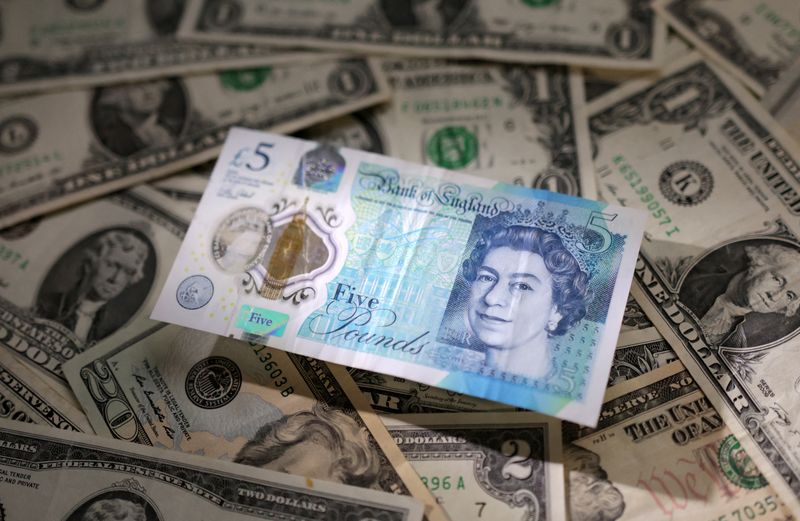By Harry Robertson
LONDON (Reuters) - The pound was little changed on Friday after falling to a five-month low against the dollar in Asian trading hours as investors responded to reports of an Israeli attack on Iran.
People familiar with the matter told Reuters that Israel attacked Iran, days after Iran launched an unprecedented assault on Israel in response to a suspected Israeli strike on its consulate in Syria.
Safe-haven currencies such as the Swiss franc, yen and dollar initially spiked on the news, helping push down the pound and the euro.
Yet the market reaction later unwound somewhat after Iran played the incident down and said it did not plan a new response.
Sterling was last up very slightly at $1.2446, after dropping to $1.2388 in Asia.
The pound is down marginally for the week but off by 1.5% for the month so far after a jump in the dollar caused by strong U.S. economic data. {{2126|The dodollar index was 0.1% higher on Friday.
The euro was little changed against the pound at 85.58 pence, having traded around that level since February.
Aside from tensions in the Middle East, UK investors were parsing data which showed retail sales stagnated in March despite inflation easing, a reminder of the troubled state of the economy.
Economists polled by Reuters had forecast sales volumes would increase by 0.3% on the month.
"Stagnating March retail sales provide a disappointing end to the quarter," said Rob Wood, chief UK economist at Pantheon Macroeconomics.
"Even so, stagnation is a significant turnaround from the large retail volumes falls seen over the past two years."

Traders broadly expect the Bank of England to lower interest rates once or twice this year, likely starting in August or September, according to pricing in derivatives markets.
Markets were expecting four or more rate cuts at the start of the year but the strength of U.S. growth and price pressures, and a slight tick-up in UK growth, have raised doubts about whether inflation has been conquered.